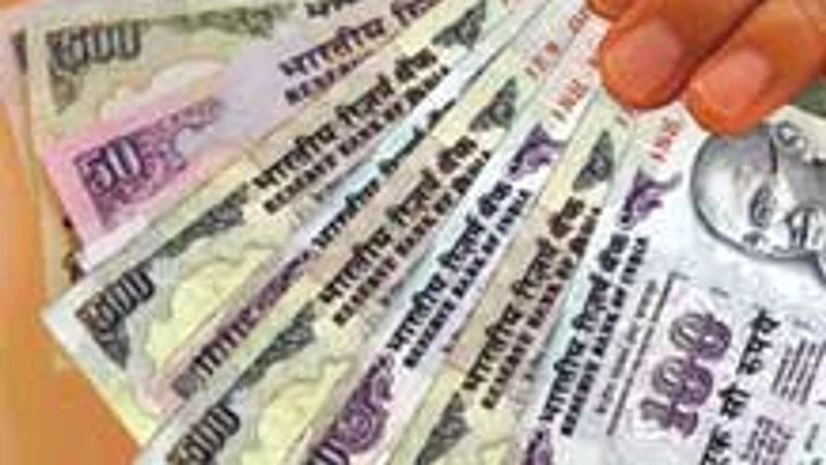The government on Saturday initiated long-pending reforms for the banking sector, as well as monetary policy formations, in line with the Reserve Bank of India's (RBI's) recommendations.
To begin with, it will withdraw from its role in appointing chief executive officers (CEO) and board members of public-sector banks. A Bank Board Bureau (BBB), comprising professionals, will be set up for appointment of CEOs and non-official directors. "This will be an interim step towards having a Bank Investment Company (BIC)," the finance ministry said in a press release after minister Arun Jaitley presented the Union Budget for 2015-16.
Read our full coverage on Union Budget
The move, in line with the recommendations of the P J Nayak committee set up by RBI to review governance issues at public-sector banks (PSBs), is aimed at increasing efficiency in functioning. According to the committee, government needs to transfer its shareholding to BIC, an umbrella holding company of public-sector banks.
More From This Section
"Setting up of a Bank Board Bureau is a welcome step towards improving corporate governance at banks. It will bring transparency in appointing PSB heads," said T M Bhasin, chairman, Indian Banks' Association.
The government has also revised the priority-sector lending norms by extending the definition to include loans to agricultural infra, agri-processing and medium enterprises under the priority sector, besides renewable energy (up to Rs 10 crore). Also, sub-targets for small and marginal farmers and micro enterprises have been created with an overall priority-sector lending requirement of 40 per cent of adjusted net bank credit of the preceding year.
Additionally, Priority-Sector Lending Certificates (PSLCs) have been introduced. These will enable banks to sell their surplus lending and earn a premium for efficiency and geographical spread. The finance ministry will monitor the banks' progress on a quarterly basis. (Disinvestment: Family Silver)
A Micro Units Development Refinance Agency (Mudra) Bank, with a corpus of Rs 20,000 crore has also been proposed. This will refinance microfinance institutions (MFIs) under the Pradhan Mantri Mudra Yojana.
Observing the performance of PSBs had been 'sub-optimal', the ministry said it would allocate capital only to efficient banks, a process started in the current financial year. For 2015-16, the Budget has allocated Rs 7,900 crore for capital infusion, against Rs 6,990 crore in 2014-15. In this context, the government asked its banks to restructure their business strategy and suggest the way forward for consolidation and merger with other banks 'if it is win-win for both'.
The government also addressed the issue of corporate distress. It is aiming to improve the bad loan recovery mechanism by bringing in comprehensive Bankruptcy Code in 2015-16. Also, non-banking financial companies with asset size of over Rs 500 crore can now take the recourse of the Sarfaesi Act for recovering dues.
The finance ministry also backed the postal department's ambition to become a payments bank, indicating a change in stance of the government from that of the previous one.
The minister also proposed a sector-neutral financial redressal agency that will address grievances against all financial service providers.
In line with the recommendations of the Urjit Patel committee, set up by RBI to review the monetary policy framework, Jaitley informed lawmakers the government had concluded a Monetary Policy Framework Agreement with RBI, for targeting inflation.
While the minister said the framework clearly stated the objective of keeping inflation below six per cent and that the RBI Act would be amended this year to set up a monetary policy committee (MPC), he refrained from divulging details on the committee's composition. The Patel panel had suggested a five-member MPC, with RBI governor as head and two other members from the central bank.
Jaitley proposed to establish a public debt management agency (PDMA), which will help manage both external and domestic debt. "A vital factor in promoting investment in India, including in the infra sector, is deepening the bond market. We have to bring it at the same level as our world-class equity market," the minister said, adding he intended to begin the process this year by setting up a PDMA that would bring both India's external borrowings and domestic debt under one roof.
THE REFORM PATH
-
Bank Board Bureau to appoint CEO, non-official directors in PSBs
-
Bank Investment Company, a holding company for banks, will be formed in which government will transfer its stake
-
Scope of priority sector lending broadened, agri infra, micro & medium enterprise, renewable energy included
-
Sub-targets for small and marginal farmers, micro enterprises in priority sector lending
-
Micro Units Development Refinance Agency (MUDRA) Bank proposed to refinance MFIs
-
To establish a public debt management agency (PDMA) which will bring both external and domestic debt under one roof
-
Capital infusion of Rs 7,900 crore in FY16, based on efficiency

)
